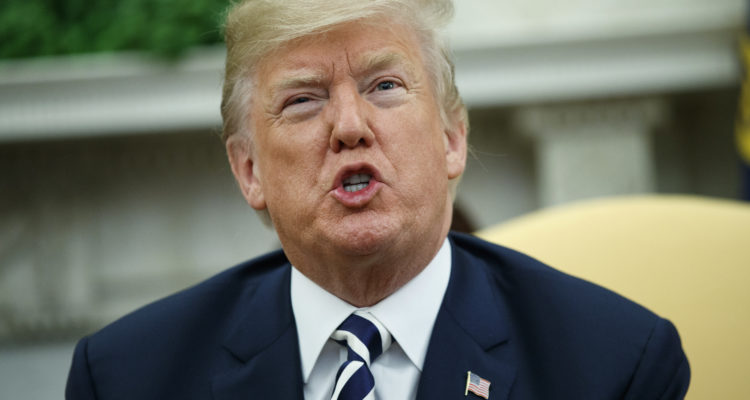US sanctions reportedly do not include throwing Iran out of the international banking network, which would severely curtail its ability to do business worldwide.
By Batya Jerenberg, World Israel News
The US will announce its next round of sanctions on Iran in four days, with some parties expressing concern that the most effective tool to rein in the Islamic Republic is not going to be used, according to reports in the American media.
Specifically, an article in the Wall Street Journal last week reported that Treasury Secretary Steven Mnuchin told “foreign governments” that the US administration may not disconnect Iran from the SWIFT global banking network.
On Thursday, Globes reported that one of those governments was Israel, which Mnuchin visited on October 21 as part of a Middle East trip to specifically discuss the re-imposition of sanctions that had been eased in the 2015 nuclear deal.
Israel and certain members of Congress are not happy about this possible loophole. The Obama administration, for its part, had cut off Iran from the SWIFT system before signing the nuclear deal, preventing the Islamic Republic from using the network for international transfers between banks.
According to Israel and its allies in the US, if the original sanctions are supposed to “snap back,” then access to the SWIFT system should be cut off, especially since President Trump promised to apply “maximum pressure” on Tehran to stop its destabilizing influence on the region.
“On Nov. 5th, all U.S. sanctions against Iran lifted by the nuclear deal will be back in full force,” Trump pledged last Thursday at a commemoration of the 35th anniversary of the attack on the Marine Corps barracks in Beirut by Iranian-backed terrorists that killed 241 American peacekeepers.
“And they will be followed up with even more sanctions to address the full range of Iran’s malign conduct. We will not allow the world’s leading sponsor of terror to develop the world’s deadliest weapons. Will not happen.”
The Treasury Department tried to reassure critics that it is behind the president.
“Treasury has made it very clear that we will continue to cut off bad Iranian actors, including designated banks, from accessing the international financial system in a number of different ways,” it said in a statement. “We will also take action against those attempting to conduct prohibited transactions with sanctioned Iranian entities regardless of the mechanisms used.”
However, if Iran is not forced out of SWIFT, it could very well keep selling oil secretly to countries that refuse to comply with American sanctions, such as China, which has a huge appetite for petroleum.
During the years in which Iran was excluded from the network, it had to deal in cash, gold, or bartering, which was almost impossible considering the huge amounts of money involved, severely curtailing its economy.
This is exactly the kind of pressure Israel and anti-Iranian lawmakers in the US are looking for.
Senator Ted Cruz (R-Texas) is therefore preparing legislation that would authorize the administration to sanction all Iranian banks and require it to act against SWIFT if it connects any such bank to its network, according to a draft seen by the Associated Press.





